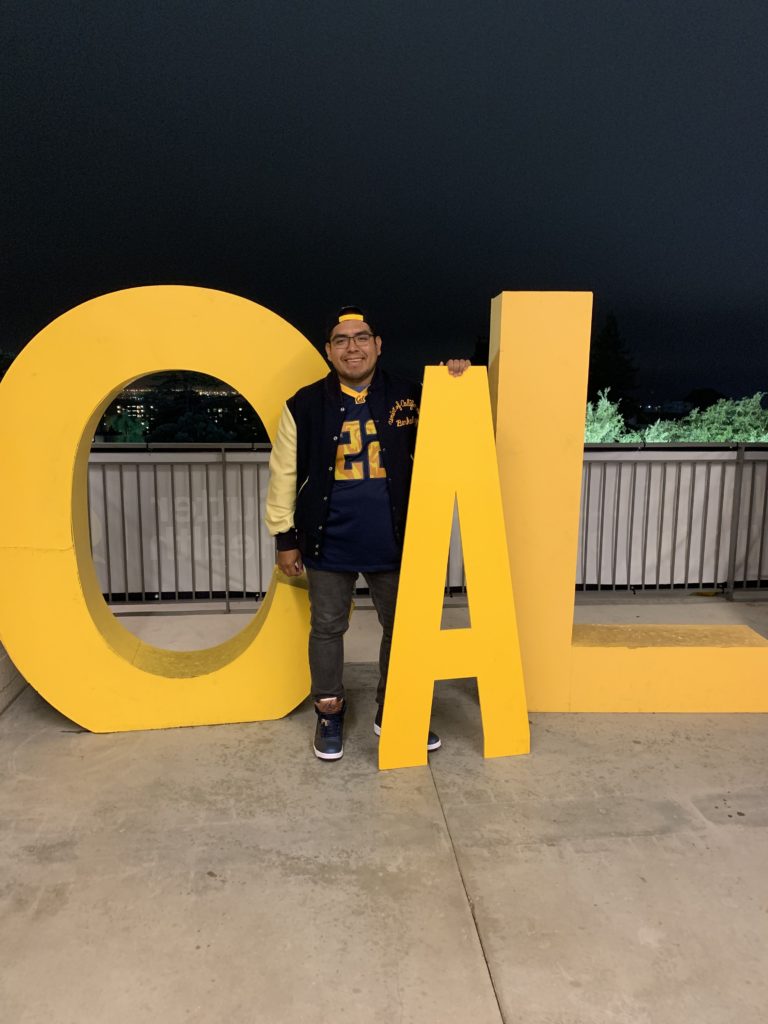Uriel Rivera ’15 Details the Less-than-Paved Road for Undocumented Students
“Where are you from?” seems like such an innocuous question. It’s a question asked to get to know someone or just make small talk. But for undocumented individuals, it’s a heavy question that doesn’t always have an easy answer.
For Uriel Rivera ’15, it’s not easy to give a simple response. As a high schooler, he lived in Los Angeles, but he was born and raised in Mexico before coming to the US in 2006 at age 16. For many other immigrants, the United States is the only home they’ve known, but legally, home is elsewhere.
2021 marks the 20th anniversary of California Assembly Bill 540, a law that made it possible for undocumented and permanent residents to pay in-state tuition at the state’s public colleges and universities. But in 2009, as Rivera applied for college, there was still no financial aid available for undocumented students. “All of our funding came out-of-pocket or through private scholarships,” Rivera says.
At the same time, someone else on campus was learning about the financial challenges faced by Cal’s undocumented students: then-Chancellor Robert Birgeneau. Birgeneau describes a conversation over a meal with one of CAA’s Achievement Award Program (TAAP) Scholars that put the students’ plight in perspective. “[My wife] Mary Catherine and I were sitting with a young TAAP scholar. When I started asking her about her life and ambitions, I could not believe all of the challenges that she was facing and the courage that she was showing in confronting them. Most of these were because she was undocumented; I barely knew about this issue at that time. I left that TAAP lunch saying to myself that I was going to do something about this problem.”

At Cal, there are currently more than 500 undocumented students, a number that has tripled since 2012, when Deferred Action for Childhood Arrivals (DACA) was signed into law. A report by President’s Alliance, an organization that focuses on policies that impact immigrant students, found that in 2020 there were more than 450,000 undocumented students in post-secondary education, two percent of all students enrolled in higher education.
His time at UC Berkeley was tumultuous, Rivera recounts. Several times, his education was put on hold for various reasons. However, he stayed a part of the Berkeley community because of his personal growth and to advocate for students like him.
When the first waves of students graduating after AB540 had trouble entering the workforce because they couldn’t get work authorization, members of the alumni community stepped in to find alternative ways for students to secure jobs. In mentoring undocumented students, Katherine Zepeda Arreola ’13 found an opportunity to give back to the university community that had opened so many doors for her. “I’ve seen the power and strength of the networks that undocumented communities have to create to just be able to survive, and with the privilege of my education and professional networks, I want to ensure that I continue to pay that forward for current undocumented students and alumni,” says Zepeda Arreola.
Rivera eventually ended up doing the same kind of work. After graduating, he became a consultant for limited-liability companies to help undocumented individuals transition into the workforce, and began working with the Alumni Scholars Program creating workshops and connecting undocumented students with resources.
After the first wave of students under AB540 graduated, Rivera says, a grassroots effort to provide students with funding and resources really kicked off. As a result, more bills followed making a pathway for higher education possible. The California Dream Act was passed in 2011, and DACA in 2012.
“2012–2014 felt like the golden age for support for undocumented students. There was so much flexibility and so much support,” Rivera recalls. “Then 2016 came around [and] it felt like going back in time. Everything we gained, everything that felt secure was in complete jeopardy.”
Under the Trump administration, DACA faced an uncertain future. People who qualified for DACA weren’t able to apply because the administration refused to accept them. In addition to the attempt to end DACA, the climate for undocumented students on campus changed. Students weren’t as open about their status for fear of retaliation, says Rivera: “You had several demonstrations on campus that really agitated the climate. There were a lot of confrontations, physically and online.”
Out of more than 450,000 undocumented students, only 216,000 qualify for DACA.
Even with a new administration that supports DACA, threats to the policy still exist. In Texas, a case that “challenges the legality of the DACA program” has been delayed for months. It’s easy to believe that all undocumented students share the same struggles and will jump through the same hurdles. The experience can vary greatly between students. For example, not all students qualify for aid. Out of more than 450,000 undocumented students, 216,000 qualify for DACA.
Though he technically qualifies as a Dreamer—a person who came to the US as a young child—because he came to the US in his mid-teens, Rivera didn’t meet the criteria to get aid under DACA: “There’s been a lot of effort to bridge the gap, but it’s an ongoing process.”
Compounded by the pandemic, for some undocumented students, finding aid is vital to their academic success. Students didn’t qualify for relief checks and some returned home to help their families. And though California has a large population of students from Mexico and Latin America, students from other countries have struggles of their own.
“Immigration is not only such a complex issue at the legislative and policy level, but also the huge amount of experiences and differences within immigrant communities,” Rivera mentions. Taking these varied immigrant experiences through the lens of education makes it even more difficult. While undocumented students share the fact that they’re not citizens, each person has their own granular matters to handle.
Watch “Highlighting the Story of Undocumented Students”
“[There] are a lot of people who aren’t just from Latin America, but from all over the world,” says Rivera. “It’s not every day that I meet someone from Nigeria or Sri Lanka, but those cases do exist. There are people who have a very unique situation with a very particular set of challenges.” The hardships that undocumented students face, however, isn’t the complete story. Many students graduate, transition into professional positions, and work in fields that advocate for other students like them. “I came to Berkeley at a time when it was pre-financial aid, pre-DACA.”
Rivera credits the Alumni Scholars Program (ASP) with providing support through scholarship programs and resources tailored to undocumented students. In collaboration with ASP, Rivera launched a workshop series designed to create a bona fide professional network linking current students with alumni who are further along their career paths. Student participants aren’t only building connections—they’re gaining perspective, says ASP Program Manager Myrtha Ortiz ’17. “What we’re trying to do with this workshop is to connect the dots, really put it into perspective, and help the current generation of Alumni Scholars understand that there are a lot of amazing resources and a network of support.”
As a Cal alum from an immigrant family, supporting undocumented students through the Alumni Scholars Program is a cause close to Ortiz’s heart. “I knew that undocumented students would have a unique experience due to their status. Undocumented students are active members of our programming, but after career panels or presentations about traditional job search and employment, they still had many questions related to how to navigate their status in the workforce.”

Showing students that it’s possible to thrive after graduation is the goal: “It’s going to be nice to allow students to see themselves in professions that they have questions about and talk with people who understand those experiences,” Rivera remarks. Ortiz agrees. “In creating this workshop, we want to create realistic and relevant opportunities for undocumented students to learn about career navigation and professional growth directly from alumni who experience this firsthand.”
For those who have left their home countries or were brought to the US by their parents, Rivera says education is instrumental to continued success. If they’ve already conquered so much to get into college, college education gives them the opportunity to do more. “[With] the opportunity to access education, we can use a lot of that resilience and innovation to come up with solutions and keep pushing forward.”




















